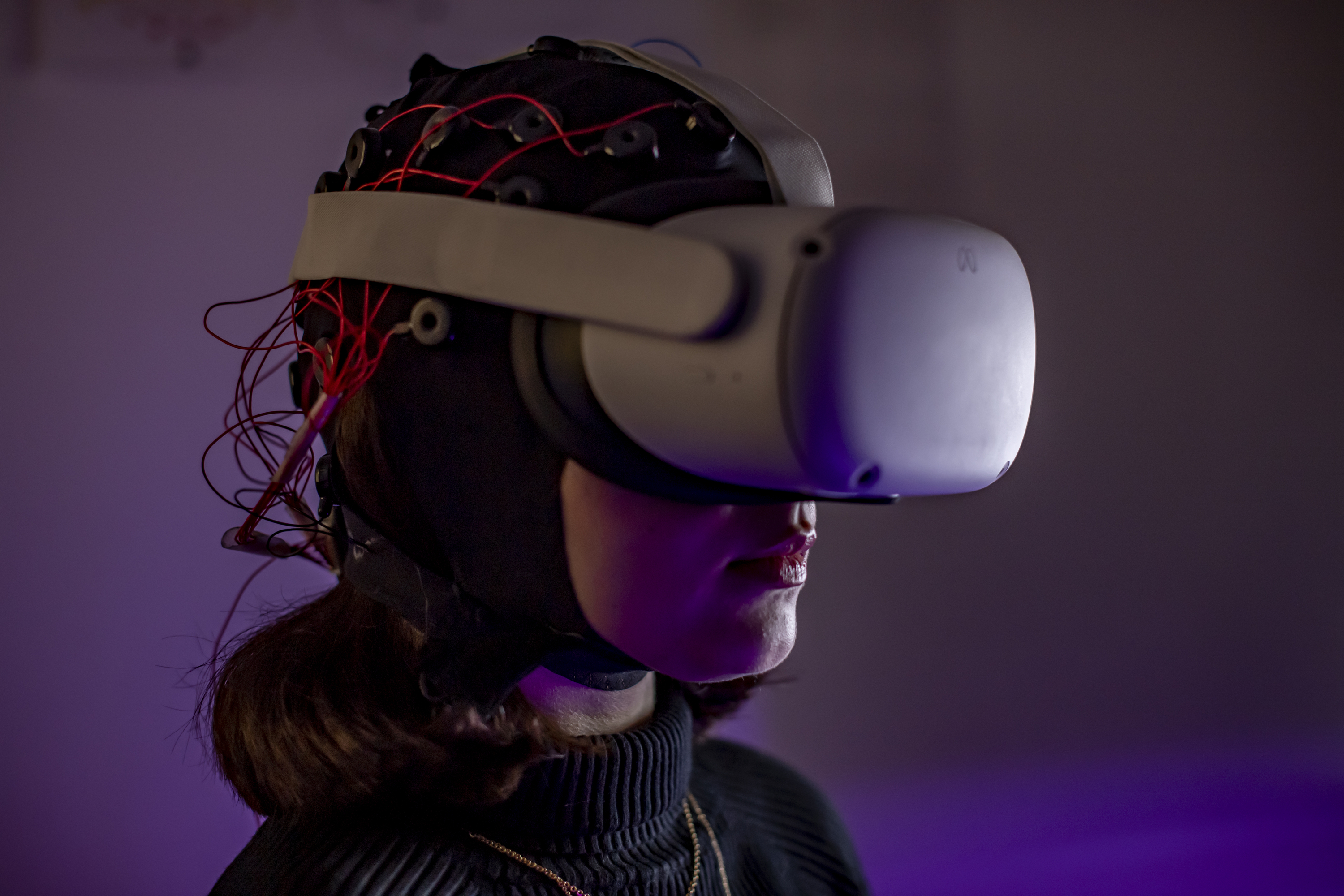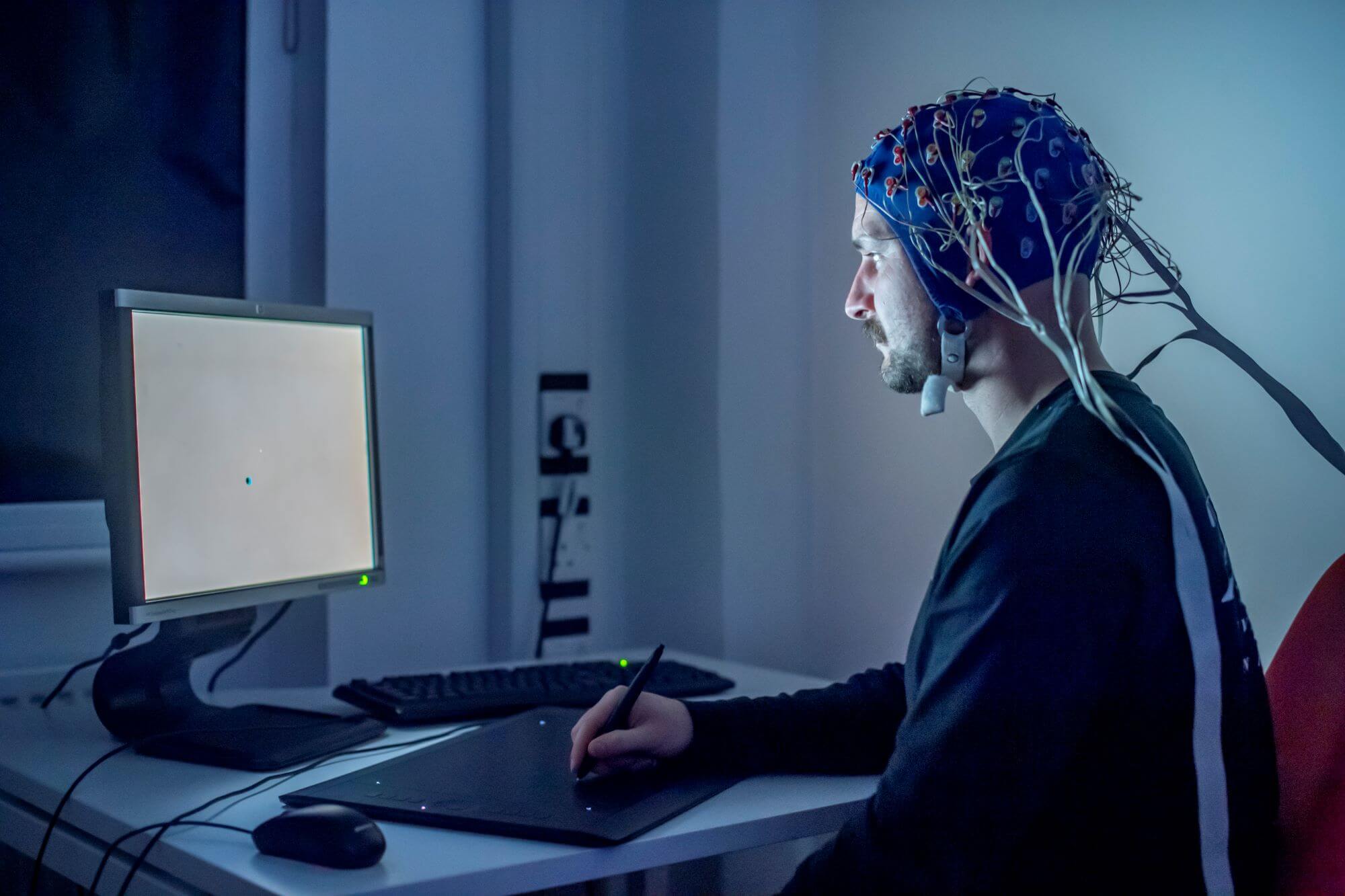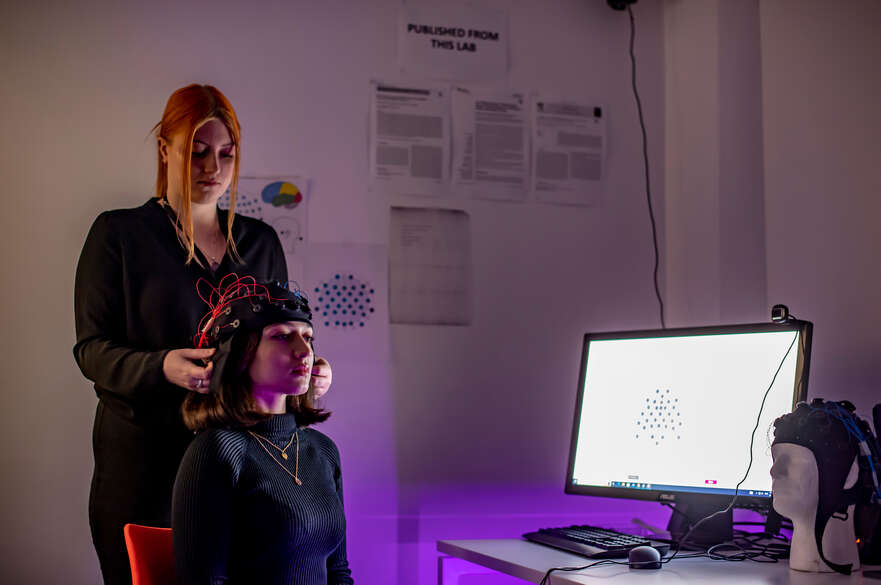Role
I am an Associate Professor in Comparative Psychology whose work bridges the fields of comparative psychology, developmental psychology, and animal cognition. My research focuses on understanding the cognitive, social, and emotional processes that underlie behaviour in animals. I teach various undergraduate and postgraduate modules at NTU, including Research Methods 1, Biological Psychology, Psychological Experiments: Tools and Methodologies, and Evolutionary Psychology. Administratively, I support the department with my involvement in the EDI committee and my role as postgraduate tutor.
Career overview
I completed my Ph.D. in Psychology at the University of Stirling, and then worked as a Staff Scientist at the Eunice Kennedy Shriver National Institute of Child Health and Human Development in Maryland, USA. I joined Nottingham Trent University in January 2019.
Research areas
Key Research Areas and Interests:
1. Cognition and behaviour: what cognitive mechanisms allow animals to perceive and interact with their non-social and social environment to shed light on the evolutionary roots of human cognition.
2. Comparative infant development: the development of cognitive and social skills in human and non-human animals, how early-life experiences influence behaviours such as attachment, play, and problem-solving. These studies often utilise remote eye tracking paradigms.
3. Cognition and captive animal welfare: understanding the cognitive needs of captive animals, including how animals perceive, interact with, and adapt to their environments, to inform better management practices that foster overall well-being.
Current projects: Feeling the HEAT – recognising Human Emotion and Affect Transfer in meerkats, funded by The Leverhulme Trust
Publications
Zeng, G., Simpson, E.A., & Paukner, A. (2023). Maximizing valid eye‑tracking data in human and macaque infants by optimizing calibration and adjusting areas of interest. Behavior Research Methods. https://doi.org/10.3758/s13428-022-02056-3
Festante, F., Rayson, H., Paukner, A., Kaburu, S. S., Toschi, G., Fox, N. A., & Ferrari, P. F. (2021). Oxytocin promotes prosocial behavior and related neural responses in infant macaques at-risk for compromised social development. Developmental Cognitive Neuroscience, 48, 100950. DOI: https://doi.org/10.1016/j.dcn.2021.100950
Paukner, A., Slonecker, E. M., & Wooddell, L. J. (2021). Effects of dominance and female presence on secondary sexual characteristics in male tufted capuchin monkeys (Sapajus apella). Ecology and Evolution, 11(11), 6315-6325. DOI: https://doi.org/10.1002/ece3.7483
Morton, F. B., Buchanan-Smith, H. M., Brosnan, S. F., Thierry, B., Paukner, A., Essler, J. L., Marcum, C.S., & Lee, P. C. (2021). Studying animal innovation at the individual level: A ratings-based assessment in capuchin monkeys (Sapajus [Cebus] sp.). Journal of Comparative Psychology. https://doi.org/10.1037/com0000264
King, R. B., & Paukner, A. (2020). Translating socioeconomic status between nonhuman primate and human studies in health research. Child Development Perspectives, 14(4), 229-235. https://doi.org/10.1111/cdep.12386
Hopper, L. M., Gulli, R. A., Howard, L. H., Kano, F., Krupenye, C., Ryan, A. M., & Paukner, A. (2020). The application of noninvasive, restraint-free eye-tracking methods for use with nonhuman primates. Behavior Research Methods. https://doi.org/10.3758/s13428-020-01465-6
Heuberger, B., Paukner, A., Wooddell, L. J., Kasman, M., & Hammond, R. A. (2020). The role of novelty and fat and sugar concentration in food selection by captive tufted capuchins (Sapajus apella). American Journal of Primatology, 82(8), e23165. https://doi.org/10.1002/ajp.23165
Maylott, S. E., Paukner, A., Ahn, Y. A., & Simpson, E. A. (2020). Human and monkey infant attention to dynamic social and nonsocial stimuli. Developmental Psychobiology, 62(6), 841-857. https://doi.org/10.1002/dev.21979
Paukner, A., Capitanio, J. P., & Blozis, S. A. (2020). A new look at neurobehavioral development in rhesus monkey neonates (Macaca mulatta). American Journal of Primatology, 82(5), e23122. https://doi.org/10.1002/ajp.23122
Paukner, A. (2020). Digit ratio (2D: 4D) and its behavioral correlates in infant rhesus macaques (Macaca mulatta). Developmental Psychobiology, 62(7), 992-998. https://doi.org/10.1002/dev.21917
Course(s) I teach on
-
 Undergraduate | Full-time
Undergraduate | Full-timeCOURSE
Psychology - BSc (Hons)
https://www.ntu.ac.uk/course/social-sciences/ug/bsc-hons-psychology
-
 Undergraduate | Full-time / Sandwich
Undergraduate | Full-time / Sandwichhttps://www.ntu.ac.uk/course/social-sciences/ug/bsc-hons-psychology-educational-and-developmental-psychology
-
 Undergraduate | Full-time / Sandwich
Undergraduate | Full-time / Sandwichhttps://www.ntu.ac.uk/course/social-sciences/ug/bsc-hons-psychology-mental-health
-
 Undergraduate | Full-time / Sandwich
Undergraduate | Full-time / Sandwichhttps://www.ntu.ac.uk/course/social-sciences/ug/bsc-hons-psychology-cognition-and-neuroscience
-
 Undergraduate | Full-time / Sandwich
Undergraduate | Full-time / Sandwichhttps://www.ntu.ac.uk/course/social-sciences/ug/bsc-hons-psychology-forensic-psychology
